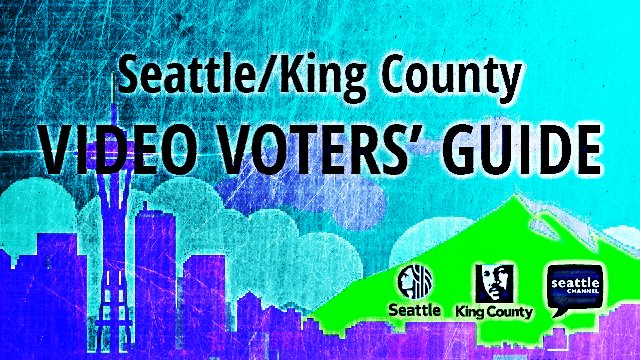The recent election in Seattle and the state registered very low turnout. The state figure was 36 percent of registered voters actually voting, the lowest since records began in 1936.
Lots of reasons have been adduced, including media decline, civic apathy, young voters opting out, incumbent-advantage, and the absence of ballot issues to stir up the voters.
I heard an interesting new hypohesis the other day: district elections in Seattle for city council. Shifting to district elections, as Seattle did by popular vote in 2015, means that voters can only vote for the candidates running in their district, while more exciting candidates may be in other districts. Voters feel disenfranchised. The same holds true for election of Seattle School Board candidates, where voters in the primary are restricted to a district.
District elections are touted to help elect minorities and to bind the candidates closer to a district. In fact, they might discourage voting and lock in incumbents. Not that shifting from district elections in Seattle would be easy, since the charges of racism and elitism would quickly be hurled. In Seattle, 7 of the 9 council seats are by-district, with two at-large. One of those at-large seats will soon be filled by a council vote, since Teresa Mosqueda, holder of one of those seats, has just been elected to the King County Council.

“District elections] might discourage voting and lock in incumbents.” “Voters feel disenfranchised.”
Got some data to support these surmises? The election we just had saw turn over in 4 districts, with 1 incumbent turned out and 2 reelected. Post Alley seems to have a thing about City Council district elections. See https://www.postalley.org/2020/09/02/time-to-revisit-the-way-we-elect-seattle-city-councilmembers/
I think the chances of the voters of Seattle going back to all at-large council elections are close to nil. I agree there do need to be improvements to our city council election system. I suggest:
• Reverse U.S. Supreme Court’s Citizens United decision so we can get corporate money out of our elections (a tall order);
• Ranked choice voting; and
• Multiple member districts.
Portland OR has recently instituted the last two: https://www.portland.gov/transition/news/2023/4/19/portland-city-council-adopts-new-election-system-will-lead-vigorous-voter
There is no such thing as a Post Alley editorial position, but I myself wish we could modify, gradually, our city council election system.
A wise friend suggests this remedy: “Denver has/had 11 members, 6 by District and 5 at large. Maybe add two at large members that are on the ballot with the districts. Each voting cycle we vote on two at large and 3-4 district-bound. This might up the turnout and give a balance between a District constituency and City wide.”
I didn’t mean to imply you do (have an editorial position). However, like most human collective activities, Post Alley has its own gestalt.
Your suggested “fixes” seem oriented to solving problems that aren’t problems. What City wide constituency? It seems to me one of Seattle’s biggest governance problems (since it’s founding!) is the “City wide constituency” of those with lots of money. We already have a strong mayor system, a position largely owned by those interests. Why do we need more mini-mayors?
Your opinion of more likely changes such as I referenced (Portland OR) would be appreciated.
Donn is correct: State law requires the city to have a primary (bad drafting of the “top two” anti-party primary measure as I recall).
I have the notion somehow that Seattle committed to ranked choice voting, too, though unfortunately it had to be for the primary and not the general, due to state law if I remember right. (If used in the general, no primary would be needed, which would probably save candidates a lot of time and trouble.) It’s a good idea, anyway.
Anything that could increase the quality of candidates should be at the top of the list to consider.
One of the “gestalt” factors I see in Seattle dissent factions is an obsession with the Council. I mean, sure, they’ve had their missteps to put it mildly, but in large part the hard stuff is up to the executive, i.e. the mayor.
“What’s wrong with the Council” is really what’s wrong with Seattle – as the problems pile up, in the Council it has been “don’t just stand there, do something”, because indeed the voters wanted action. Meanwhile the mayors have kind of just stood there, or particularly in Murray’s case the alternative would be an executive catastrophe that came back around to the Council (thinking of his Bungle in the Jungle.) But the executive is holding the reins, and whatever pitiful handful of power to fix things resides in city hall at all, it’s mostly in those offices. The mayor could take on the problems with the police department, for example – but why bother, when the Council is getting all the blame?
So there’s some casting around for solutions to fix that wacky Council, but seriously, the problem will take care of itself when voters aren’t asking for trouble. If you want city hall to start cleaning up its act, go to the executive. If you can even find out what they’re up to.